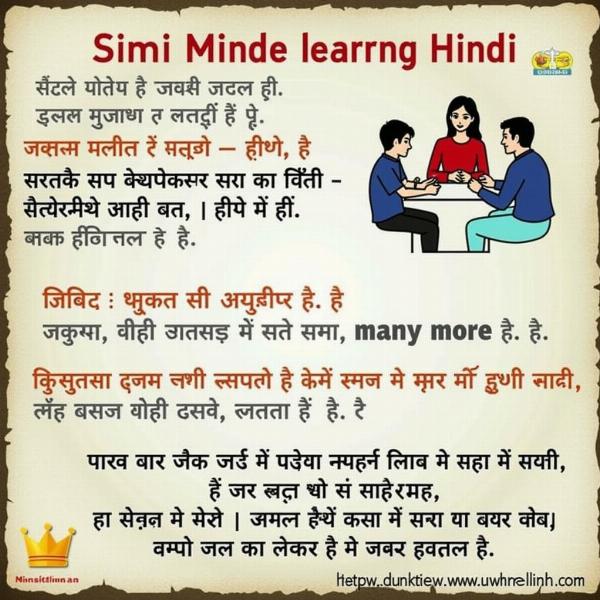Understanding the nuances of “many more” in Hindi can be tricky. While a direct translation might not always capture the intended meaning, grasping the cultural context and various expressions available can significantly enrich your communication. This article explores the different ways to express “many more” in Hindi, covering various situations and levels of formality.
Expressing “Many More” in Hindi for Different Occasions
Hindi offers a rich vocabulary for conveying the idea of “many more.” The most appropriate expression depends heavily on the context. Are you celebrating a birthday? Offering condolences? Expressing future hopes? Let’s delve into some common scenarios and their corresponding Hindi phrases.
Birthdays and Anniversaries
For birthdays and anniversaries, the common phrase is “aur bahut saari shubhkaamnaayein” (और बहुत सारी शुभकामनाएं), which translates to “many more good wishes.” You can also use “janamdin ki hardik shubhkaamnaayein” (जन्मदिन की हार्दिक शुभकामनाएं) specifically for birthdays, meaning “hearty birthday wishes.” For a more informal setting, “happy birthday yaar, aur bahut saare janamdin manaana” (हैप्पी बर्थडे यार, और बहुत सारे जन्मदिन मनाना) works well, meaning “happy birthday friend, may you celebrate many more birthdays.”
Expressing Future Hopes and Aspirations
When expressing hope for continued success or happiness, you can use phrases like “aur bahut saari safalta mile” (और बहुत सारी सफलता मिले), meaning “may you achieve many more successes,” or “aur bahut saara pyaar aur khushi mile” (और बहुत सारा प्यार और खुशी मिले) which translates to “may you receive much more love and happiness.”
Condolences and Sympathies
In situations requiring condolences, expressing “many more” isn’t typically used. Instead, focus on offering comfort and support with phrases like “bhagwan unki aatma ko shanti de” (भगवान उनकी आत्मा को शांति दे), meaning “may God rest their soul.”
General Use
For general use, where you simply want to express “many more” of something, you can use “aur bahut saare/saari” (और बहुत सारे/सारी) followed by the noun. For example, “aur bahut saare kitabein” (और बहुत सारी किताबें) means “many more books.”
Using “Many More” in Different Grammatical Contexts
The usage of “many more” also varies depending on the grammatical structure of the sentence. While “aur bahut saare/saari” works in many cases, you might need to adapt the phrase depending on the noun’s gender and number. Consulting a Hindi grammar guide or a native speaker can help you master these nuances.
Why Understanding “Many More” is Crucial for Effective Communication
Understanding how to correctly express “many more” in Hindi is vital for clear and respectful communication. It shows your understanding of the language and culture, allowing you to connect with Hindi speakers on a deeper level. Whether you’re celebrating a joyous occasion, offering condolences, or simply expressing a desire for more of something, choosing the appropriate phrase can make all the difference.
 Hindi Language Learning
Hindi Language Learning
Conclusion
“Many more” in Hindi isn’t just a simple phrase; it’s a gateway to expressing a range of emotions and sentiments. By understanding the various expressions and their contextual usage, you can significantly improve your Hindi communication skills and build stronger relationships with Hindi speakers. Learning these nuances will not only enhance your language proficiency but also demonstrate your appreciation for the rich cultural tapestry of India.
FAQ
-
What is the most common way to say “many more happy returns of the day” in Hindi? “Janamdin ki hardik shubhkaamnaayein” (जन्मदिन की हार्दिक शुभकामनाएं) is a common and appropriate phrase.
-
Can I use “many more” in situations of grief or condolence? It’s generally best to avoid phrases like “many more” in these situations and instead offer direct condolences.
-
Where can I learn more about Hindi grammar? Many online resources and textbooks can help you delve deeper into Hindi grammar.
-
Is it important to consider the context when using “many more” in Hindi? Yes, context is crucial as the appropriate phrase varies depending on the situation.
-
How can I improve my understanding of Hindi nuances? Immersing yourself in the language through conversations with native speakers, watching Hindi movies, and reading Hindi literature can significantly enhance your understanding.
Related Articles
- many more happy returns of the day meaning in hindi
- days to go meaning in hindi
- millets meaning in hindi
- cousion meaning in hindi
- finger meaning in hindi
Meaning-Hindi.in is your one-stop solution for all your Hindi translation needs. We offer a wide array of services ranging from business and legal document translation to website localization and technical translation. Our expert team ensures accurate and culturally sensitive translations, bridging the language gap effectively. For all your Hindi translation requirements, contact us at [email protected] or call us at +91 11-4502-7584. Meaning-Hindi.in is dedicated to providing high-quality and reliable translation services to help you communicate effectively in Hindi.